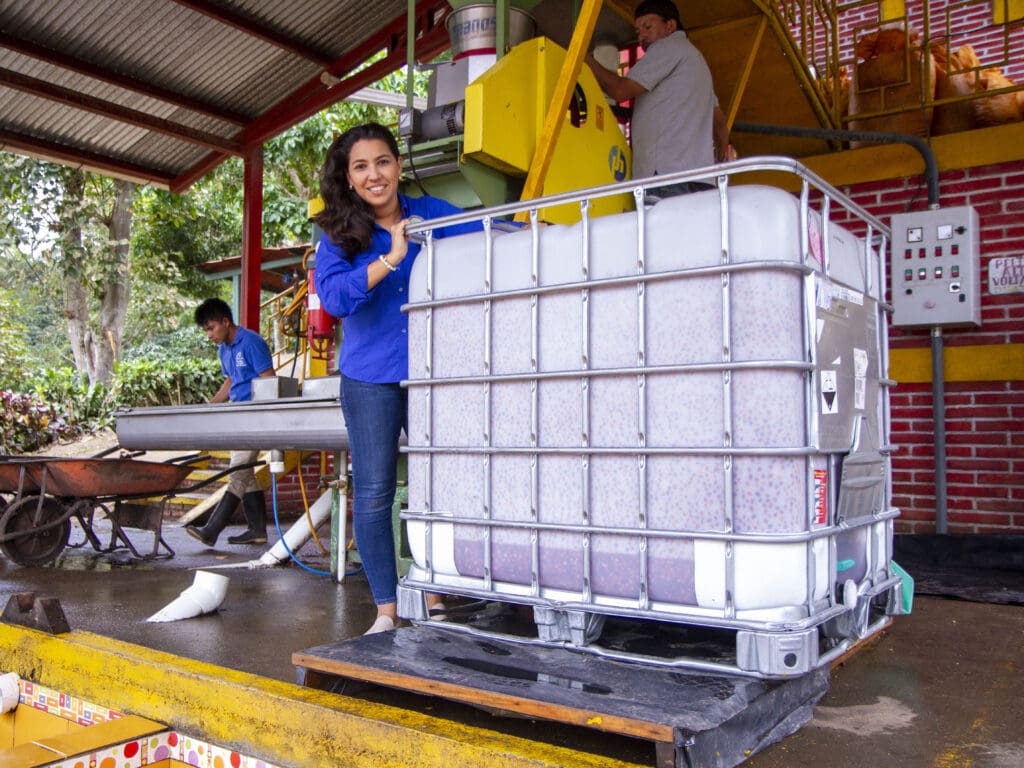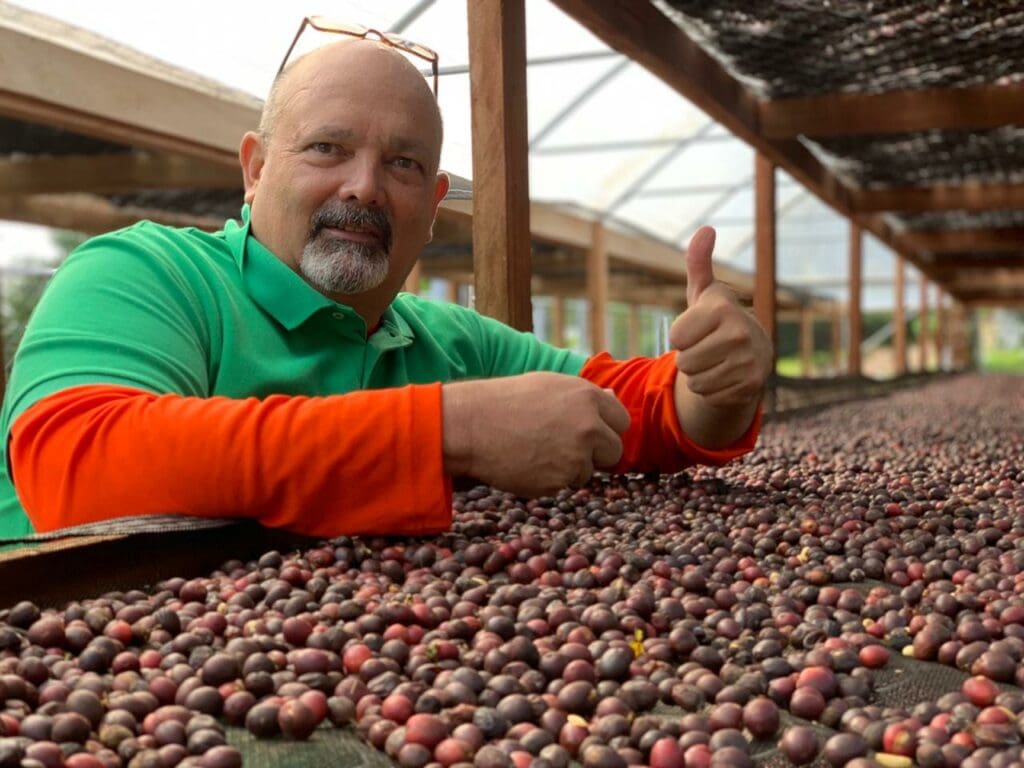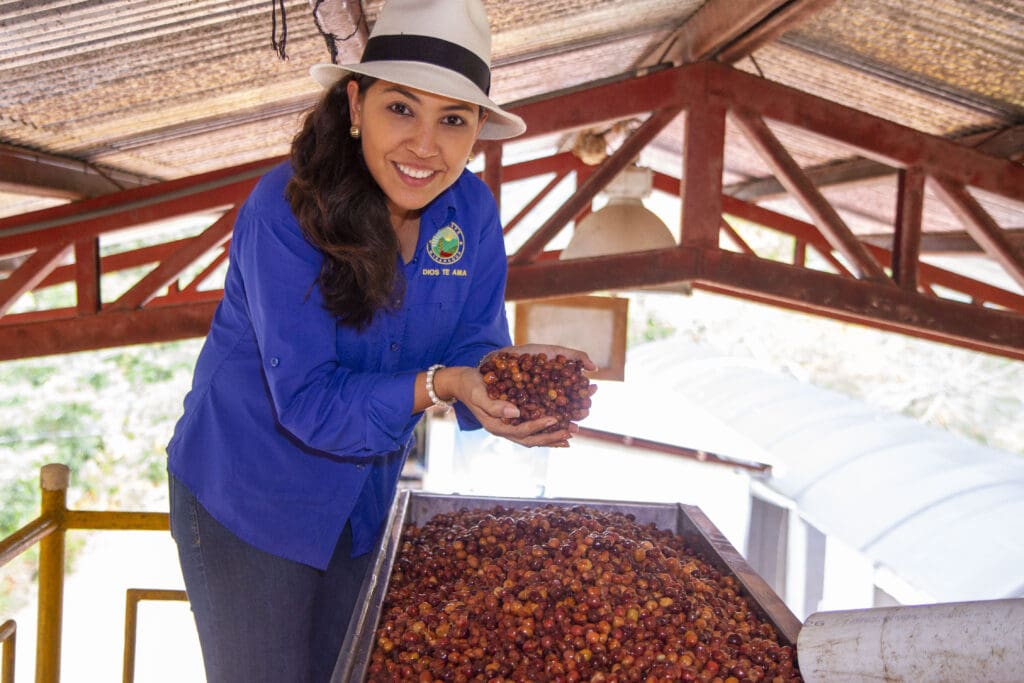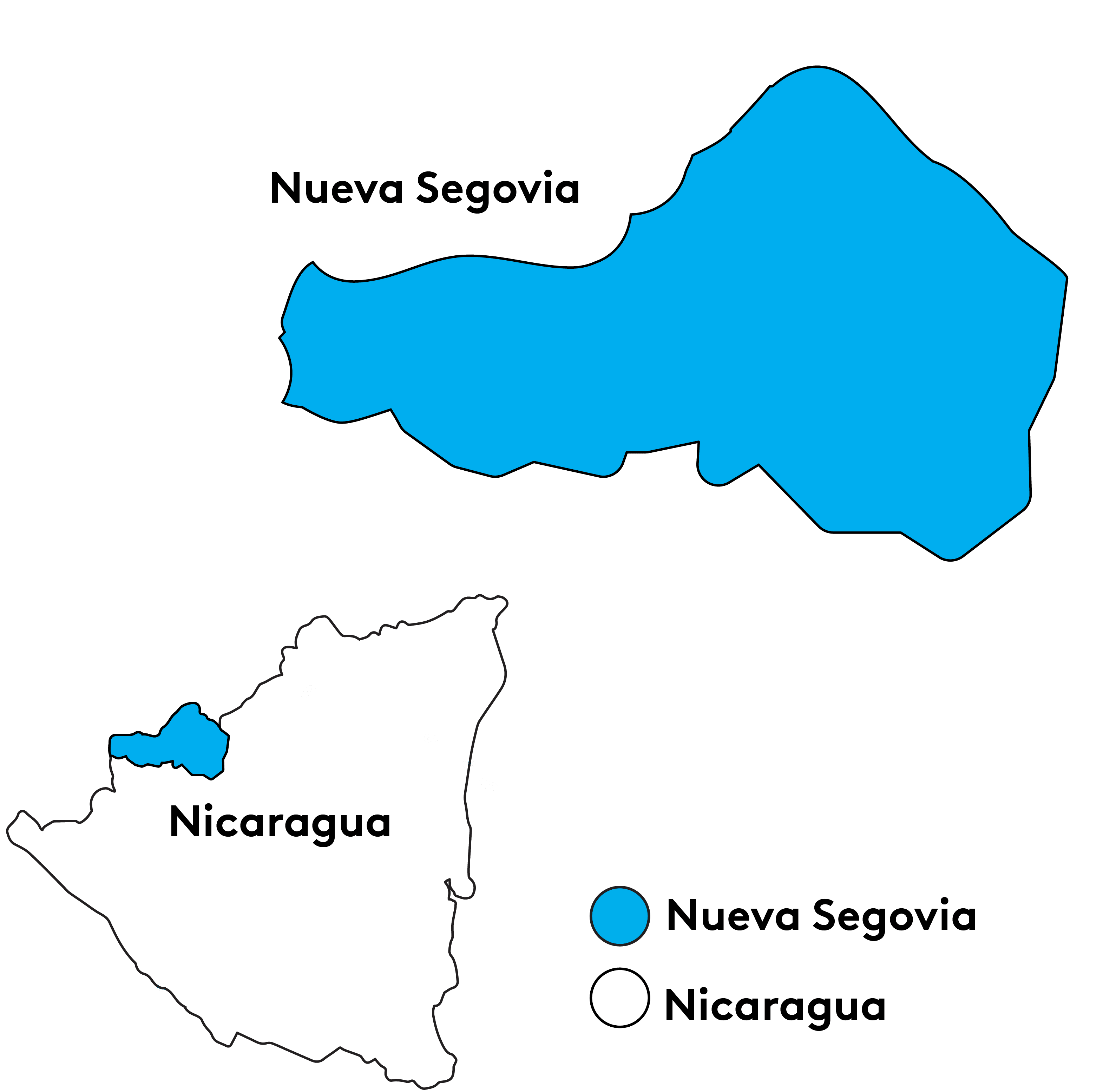Tucked into the mountains of northern Nicaragua, in the Dipilto municipality of Nueva Segovia, you’ll find Finca Las Marias. Operated by Gabriela Hueck, the farm is a partnership between Gabriela, her husband Henry, and the Ponçon Güier family who have grown from friends into business partners. The natural resources of the area have translated to a good location for a coffee farm, with nutrient-rich sandy soil, elevations over 1,300 meters, and several native trees and leguminous plants which provide shade to the coffee crop.
Gabriela’s career in coffee began in 2004 when she became involved in the organization of the Ramacafe International Coffee Meeting. Here she met the event’s organizer, Henry Hueck. Henry would not only go on to become Gabriela’s husband, but would also be the person introducing her to the coffee industry from seed to cup. In 2005, they began to work together on the operations at Finca Las Marias.
Alongside a focus on high quality coffee, the farm is operated with an emphasis on social responsibility. Gabriela and her team have worked on housing rehabilitation, ensuring that the living facilities are comfortable, safe, and healthy. Basic provided services have been improved since they took over for both permanent and temporary personnel. Las Marias also employs women on a full-time basis, providing equal pay for everyone on staff.
This lot of H3 coffee underwent an Anaerobic Black Honey process. H3 is part of the first wave of F1 Hybrid cultivars that were developed and released. Though it wasn’t part of the final round of hybrid selections due to its susceptibility to leaf rust, its high cup quality has kept it in favor with producers. Processing for this coffee begins with selective harvest of the cherries, choosing only ideally ripe fruit. The coffee is fermented whole in a plastic fermentation tank for 100 hours. The fermentation tank is fitted with a one-way valve, allowing oxygen to be removed to create the anaerobic environment for fermentation. Cherries are then pulped in an ecological wetmill and moved immediately to the dry mill for drying. The pulped coffee is dried for 3 days on patios, followed by 20 days on raised beds.






